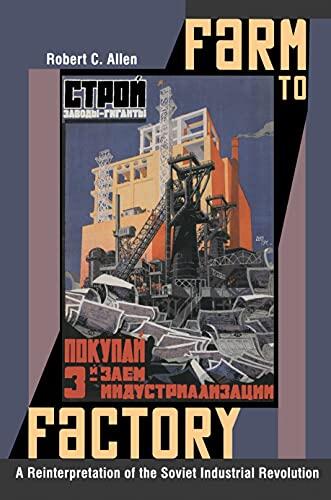
Farm to Factory: A Reinterpretation of the Soviet Industrial Revolution
还没有评分
History
Business & Economics
格式
精装书
页数
312
语言
英语
已发布
Oct 19, 2003
出版商
Princeton University Press
ISBN-10
0691006962
ISBN-13
9780691006963
描述
In this insightful examination, Robert C. Allen delves into the intricate relationship between agriculture and industry during the Soviet Industrial Revolution. He reinterprets the factors that shaped this significant period, highlighting how rural economies transitioned into robust industrial hubs. By analyzing the interplay between farm outputs and industrial growth, he offers a fresh perspective on the economic transformations that marked Russia's leap into modernity.
The narrative meticulously charts the evolution of agricultural practices and their direct implications for industrial development. Allen's rigorous research brings to light the vital role that agrarian productivity played in supplying labor and resources necessary for burgeoning factories. Through detailed case studies and historical insights, he illustrates how these interconnected dynamics influenced the trajectory of Soviet economic policies.
Ultimately, the work provides a comprehensive understanding of how the Soviet Union’s ambitions for industrial prowess were deeply rooted in its rural base. Allen's interpretations challenge conventional narratives, offering readers a nuanced appreciation of an era that shaped the course of modern economic history.
The narrative meticulously charts the evolution of agricultural practices and their direct implications for industrial development. Allen's rigorous research brings to light the vital role that agrarian productivity played in supplying labor and resources necessary for burgeoning factories. Through detailed case studies and historical insights, he illustrates how these interconnected dynamics influenced the trajectory of Soviet economic policies.
Ultimately, the work provides a comprehensive understanding of how the Soviet Union’s ambitions for industrial prowess were deeply rooted in its rural base. Allen's interpretations challenge conventional narratives, offering readers a nuanced appreciation of an era that shaped the course of modern economic history.